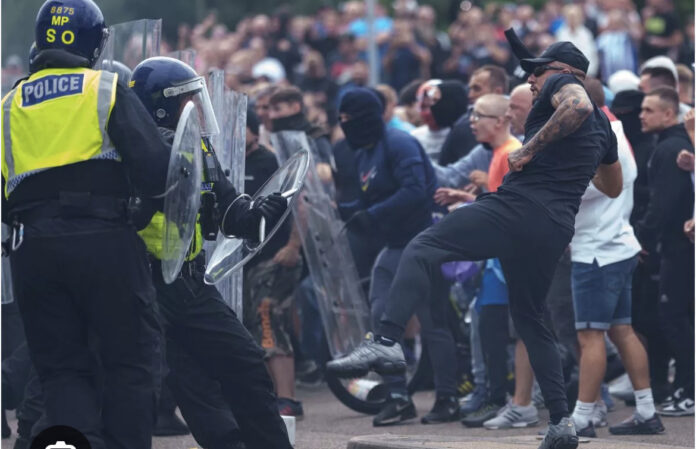A report out today into the police response to the 2024 summer disorder has found no evidence of ‘two-tier policing’ in response to violence but said that Police reform needs to address both emergency response and day-to-day issues to support police forces
The report by Parliament’s Cross Party Home Affairs committee on the disorder following the murders of Bebe King, Elsie Dot Stancombe and Alice Da Silva Aguiar in Southport said that an estimated 40,000 additional officer shifts were required by police officers in a ten-day period and over 1,500 arrests were made in response to the disorder.
In key aspects, the criminal justice system has failed to keep pace with the social media age, the report finds. Contempt of court rules led to restrictions on disclosure which created an information vacuum that allowed disinformation to flourish.
The Crown Prosecution Service (CPS) is also right to review its 19 year old guidelines but will also need to ensure a shared understanding of their interpretation with criminal justice partners and the media.
Some police forces failed to anticipate the intensity of the violence in 2024. This undermined their ability to undertake proactive policing and left officers exposed to significant risk.
The co-ordination of the national police response to localised disorder lacked resilience which weakened the overall response. The Government’s planned policing reforms should be ambitious to address these problems.
Unsubstantiated and “disgraceful” claims of “two-tier policing” served only to undermine police officers. Given the levels of violence and criminal behaviour witnessed in summer 2024 the Committee found the police response to be “entirely appropriate”.
The successful police response relied on the criminal justice system being able to prosecute and imprison high numbers of offenders at speed. This necessitated dedicated resourcing and Government support. However, lengthy court backlogs continue to delay justice in the wider system. The Government’s ambitious crime reduction targets will require better join-up between different parts of the criminal justice system, learning from the experience of the disorder.
Chair of the Home Affairs Committee, Dame Karen Bradley said:
“Police officers on the ground showed tremendous courage and fortitude in responding to scenes of deplorable violence. But some police forces could have better anticipated the risk of disorder and taken a more proactive and preventative approach.
“Lessons must be learned from how the whole criminal justice system worked together. It will need to ensure that police forces can improve how they deal with regular policing work as well as supporting them to develop capacity to respond to crises. The Government’s plans for police reform will be especially important for making sure national policing structures support forces effectively in emergencies.
“It is a grim reality that bad actors sought to exploit the unspeakable tragedy that unfolded in Southport. By failing to disclose information to the public, false claims filled the gap and flourished online, further undermining confidence in the police and public authorities. The criminal justice system will need to ensure its approach to communication is fit for the social media age.
“There is a difference in how police must deal with violence and how they deal with peaceful protests. This needs to recognised by commentators who all too readily spread claims of “two tier policing”. Organised disorder is rightly met with a robust response; any implied equivalence with planned non-violent protests is simply wrong.”







